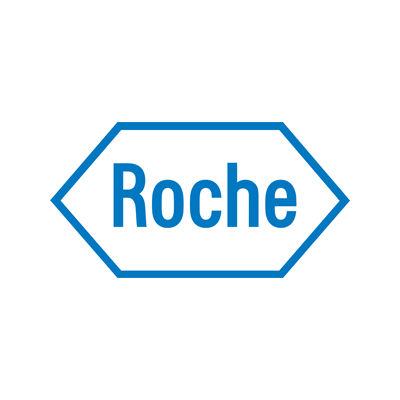预约演示
更新于:2025-05-07
CD20 x Hyaluronic acid
更新于:2025-05-07
基本信息
关联
1
项与 CD20 x Hyaluronic acid 相关的药物作用机制 CD20抑制剂 [+4] |
在研机构 |
原研机构 |
非在研适应症 |
最高研发阶段批准上市 |
首次获批国家/地区 加拿大 |
首次获批日期2016-11-22 |
11
项与 CD20 x Hyaluronic acid 相关的临床试验NCT05211401
Rituximab in Patients with ST-elevation Myocardial Infarction: a Phase 2 Placebo-controlled Randomized Clinical Trial: RITA-MI 2
The main objective is to compare the effect of a single injection of two doses of rituximab versus placebo on 6 months left ventricular systolic function, using CMR, in patients who have had an acute anterior STEMI.
The primary endpoint is the left ventricular ejection fraction (LVEF) by CMR at 6 months.
The primary endpoint is the left ventricular ejection fraction (LVEF) by CMR at 6 months.
开始日期2022-06-01 |
申办/合作机构 |
NCT04447716
A Phase I Study of Venetoclax + Lenalidomide + Rituximab Hyaluronidase in Relapsed or Refractory (R/R) Indolent Non-Hodgkin's Lymphoma (iNHL).
This phase I trial studies the side effects and best dose of venetoclax when given together with lenalidomide and rituximab hyaluronidase in treating patients with follicular lymphoma and marginal zone lymphoma that has come back after treatment (relapsed) or has not responded to treatment (refractory). Venetoclax may stop the growth of cancer cells by blocking the action of a protein called Bcl-2, that helps cancer cells survive. Immunotherapy with lenalidomide, may induce changes in body's immune system and may interfere with the ability of tumor cells to grow and spread. Immunotherapy with monoclonal antibodies, such as rituximab and rituximab hyaluronidase, may help the body's immune system attack the cancer, and may interfere with the ability of tumor cells to grow and spread. The purpose of this research is to determine if the combination of three drugs, venetoclax, lenalidomide, and rituximab hyaluronidase are safe to administer in patients whose low-grade lymphoma (follicular or marginal zone) has come back after initial therapy or was not responsive to initial therapy.
开始日期2020-10-16 |
申办/合作机构 |
100 项与 CD20 x Hyaluronic acid 相关的临床结果
登录后查看更多信息
100 项与 CD20 x Hyaluronic acid 相关的转化医学
登录后查看更多信息
0 项与 CD20 x Hyaluronic acid 相关的专利(医药)
登录后查看更多信息
5
项与 CD20 x Hyaluronic acid 相关的文献(医药)2020-01-01·Folia Biologica
Anti-CD38 Therapy with Daratumumab for Relapsed/Refractory CD20-Negative Diffuse Large B-Cell Lymphoma
Article
作者: Pokorna, E ; Vokurka, M ; Karolova, J ; Klener, P ; Svaton, M ; Vockova, P
2019-05-01·Advanced Functional Materials1区 · 材料科学
Binary Targeting of siRNA to Hematologic Cancer Cells In Vivo Using Layer‐by‐Layer Nanoparticles
1区 · 材料科学
Article
作者: Laccetti, Kristiana H. ; Hammond, Paula T. ; Correa, Santiago ; Dreaden, Erik ; Min, Jouha ; Roh, Young Hoon ; Kong, Stephanie ; Palmer, Peter A. ; Roy, Sweta ; Li, Jiahe ; Lawson, Edward C. ; Choi, Ki Young ; Heo, Roun
2015-12-01·Annals of the Rheumatic Diseases1区 · 医学
B-cell depletion attenuates serological biomarkers of fibrosis and myofibroblast activation in IgG4-related disease
1区 · 医学
Article
作者: Carruthers, Mollie ; Mattoo, Hamid ; Feeney, Eoin ; Chung, Raymond T ; Kulikova, Maria ; Deshpande, Vikram ; Mahajan, Vinay ; Stone, John H ; Wallace, Zachary S ; Della-Torre, Emanuel ; Pillai, Shiv
分析
对领域进行一次全面的分析。
登录
或

生物医药百科问答
全新生物医药AI Agent 覆盖科研全链路,让突破性发现快人一步
立即开始免费试用!
智慧芽新药情报库是智慧芽专为生命科学人士构建的基于AI的创新药情报平台,助您全方位提升您的研发与决策效率。
立即开始数据试用!
智慧芽新药库数据也通过智慧芽数据服务平台,以API或者数据包形式对外开放,助您更加充分利用智慧芽新药情报信息。
生物序列数据库
生物药研发创新
免费使用
化学结构数据库
小分子化药研发创新
免费使用



